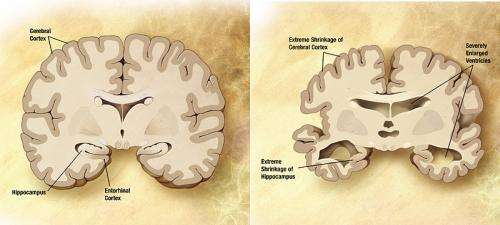#’Good evidence’ that ADHD drugs might also treat Alzheimer’s disease

Table of Contents
“‘Good evidence’ that ADHD drugs might also treat Alzheimer’s disease”

There is “good evidence” that drugs to treat attention deficit hyperactivity disorder (ADHD) might also successfully treat key aspects of Alzheimer’s disease, finds a pooled data analysis of the available research, published online in the Journal of Neurology Neurosurgery & Psychiatry.
Clinical trials of noradrenergic drugs, which include antidepressants and medicines to treat high blood pressure and ADHD, are now warranted, say the researchers.
Noradrenergic drugs target the neurotransmitter noradrenaline, also called norepinephrine, which is released by a network of specialized noradrenergic neurons.
This network is critical for arousal and many cognitive processes, including attention, learning, memory, readiness for action, and suppression of inappropriate behaviors.
Noradrenergic disruption occurs early in Alzheimer’s disease and contributes to the cognitive and neuropsychiatric symptoms that characterize the condition, suggesting that the noradrenergic system would be a good target for drug treatment.
The researchers therefore looked for clinical trials published between 1980 and 2021 in which noradrenergic drugs, such as atomoxetine, methylphenidate, and guanfacine, had been used to potentially improve cognitive and/or neuropsychiatric symptoms in people with neurodegenerative disease.
They included a total of 19 randomized controlled trials focusing on Alzheimer’s disease and mild cognitive impairment, involving 1811 patients: six of these trials were judged to be ‘good’ quality, seven as ‘fair’, and six as ‘poor’.
The results of 10 of these trials, involving 1300 patients, were pooled for global cognition—orientation/attention, memory, verbal fluency, language and visuospatial ability.
This showed a small, but significant, positive effect of noradrenergic drugs on overall cognition, as measured by the Mini-Mental State Exam or the Alzheimer’s Disease Assessment Scale.
The results of 8 clinical trials, involving 425 patients, were then pooled for behavior and neuropsychiatric symptoms, agitation and apathy. And this showed a large positive effect of noradrenergic drugs on apathy, even after removing outliers to account for differences in trial design and intended outcomes.
“Repurposing of established noradrenergic drugs is most likely to offer effective treatment in Alzheimer’s disease for general cognition and apathy,” say the researchers.
They add:”There is a strong rationale for further, targeted clinical trials of noradrenergic treatments in Alzheimer’s disease.”
But several factors need to be considered first, they caution. These include appropriate targeting of particular groups of patients and understanding the dose effects of individual drugs and their interactions with other treatments to minimize the cons and maximize the pros of noradrenergic drugs, they say.
Alzheimer’s pathology, not cognitive decline, drives neuropsychiatric symptoms
Cognitive and neuropsychiatric effects of noradrenergic treatment in Alzheimer’s disease: systematic review and meta-analysis, Journal of Neurology Neurosurgery & Psychiatry (2022). DOI: 10.1136/jnnp-2022-329136
Citation:
‘Good evidence’ that ADHD drugs might also treat Alzheimer’s disease (2022, July 5)
retrieved 5 July 2022
from https://medicalxpress.com/news/2022-07-good-evidence-adhd-drugs-alzheimer.html
This document is subject to copyright. Apart from any fair dealing for the purpose of private study or research, no
part may be reproduced without the written permission. The content is provided for information purposes only.
If you liked the article, do not forget to share it with your friends. Follow us on Google News too, click on the star and choose us from your favorites.
For forums sites go to Forum.BuradaBiliyorum.Com
If you want to read more Like this articles, you can visit our Science category.